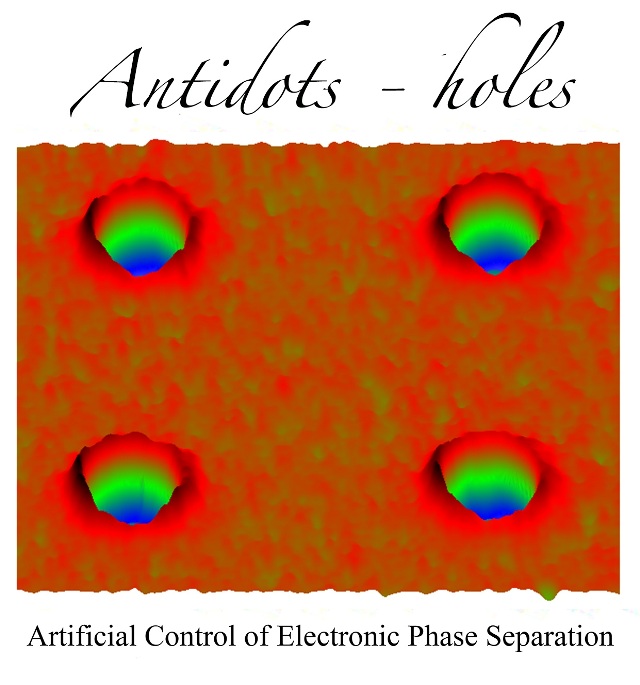Some of today's most highly advanced technology tools are made out of complex, hard materials comprising multiple components. However, the behavior of these materials when subjected to magnetic fields, pressures and specific temperatures has not yet been fully explored. A team of researchers from LSU, University of Florida, Fudan University and the Collaborative Innovation Center of Advanced Microstructures, China, has performed studies on materials that divide into various regions through a process called electronic phase separation

The study helps researchers to gain new insights into the ways of manipulating these materials without applying external magnetic fields, altering the chemical concentration, and developing new materials. The research findings have appeared in the Proceedings of the National Academy of Sciences.
In this study, magnetite was manipulated by the researchers. Using this steel gray mineral, magnetic hard discs are built for use in computers. The researchers discovered that the creation of antidots or holes on thin magnetite films led the material to exhibit magnetic properties around the edges of the holes.
“The discovery of the magnetic edge states on the antidots made this work possible. Nobody had ever seen this before,” said Ward Plummer, Physics Professor at LSU and a co-author of the research work.
As a result of the magnetic phase state found along the edges of the holes, the magnetite film’s metal-to-insulator phase transition temperature was elevated. These results were reproduced by the team via simulations.
People have really tried to increase the temperature and reduce the operating field or tried to change the substrate or chemical composition. But we find this new approach with antidots to be quite useful.
Jian Shen, head of the Department of Physics at Fudan University and a co-author on the paper.
“What you really would like to do is get this temperature above room temperature, so you can switch the material by using a magnetic field,” Plummer said.
This research work is part of an ongoing collaborative project of Plummer and Shen, who started the study on the behavior of magnetite systems subjected to low magnetic fields and elevated temperatures in 1998 at Oak Ridge National Laboratory. The Department of Energy provides funding to this collaborative project.
References